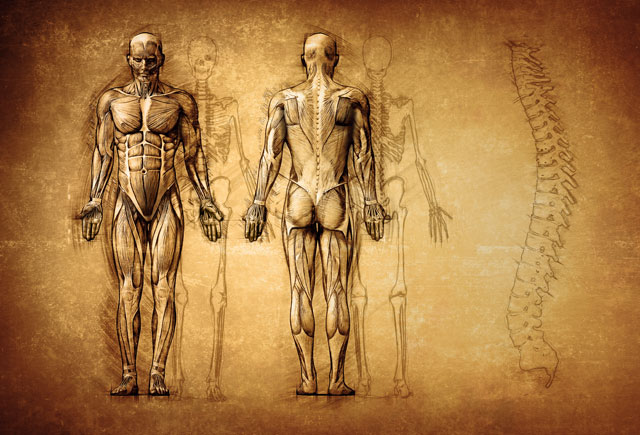Most of the time you will be given no choice in hospital if you have managed care or an HMO. Most doctors will practice at a given hospital, and when you choose a particular doctor, you will have to use his or her hospital.
If you have the choice, what you will want to look for are hospitals that have progressive birthing centers that include family birthing rooms where you can have more than just your partner present if that is your desire during delivery.
Birthing Centers:
Birthing Centers are specifically designed to provide a relaxing atmosphere for laboring mothers. The care is generally monitored by midwives and birth is a more natural and normal process where the women are treated more like a participant in the birthing process.
Most birth centers are run by highly trained professionals who use a much more holistic approach to medicine. Many insurance plans will cover the costs of a birthing center.
Doctors:
Doctors still account for the vast majority of prenatal care. Of the over four million pregnant American women, only 300,000 did not go to a doctor for their care. Most of the doctors providing prenatal care are obstetricians. The other doctors providing care are family practice physicians who specialize in the care of the entire family. Virtually all doctors who practice obstetrics are associated with a hospital and will expect you to deliver in a hospital.
You really have to have a doctor you can talk to and you can trust. It is a good idea to get a recommendation from someone who has recently had a baby. Other sources of recommendations are nurses, receptionists, and others who work in a medical setting. Word about doctors gets around, and if you ask enough people, you will usually get a pretty good idea of who you do or do not wish to provide prenatal care for you and your baby.
Keep in mind that when you go into labor, you will call your doctor and be told to meet at the hospital. You will likely be at the hospital for several hours before your doctor arrives. He depends on the Labor and Delivery staff of the hospital to get you prepared for delivery and give him updates on the phone as to your progress.
The most important reason for seeing a doctor during your prenatal care is safety for both you and your baby. It is very safe for mothers and babies for physician monitored medical care.
Most women expect to see a doctor for their prenatal care, and if you are more comfortable with this option, that is a great idea. However, if you are anticipating a normal, healthy, and uncomplicated pregnancy you might investigate the possibility of midwifery care.
Certified Nurse Midwives (CNMs) are registered nurses who have taken advanced training in obstetric care. They have taken a step beyond just the science of obstetrics and have learned to practice the art of it.
Certified Midwives (CMs) become certified through the American College of Nurse Midwives (ACNM). They are not always nurses, but are certainly highly trained and generally work with women with uncomplicated pregnancies. They usually work with an obstetrics group of obstetricians.
Midwives are more likely to be physically present throughout nearly all of your labor, which is when you will need the most support. This is important because her calming presence reduces the mother's anxiety and resulting tension. This helps to speed labor, minimize the need for pain medication and epidural anesthesia.
Midwives can also support your decision to have a more normal labor. For instance, if your labor is not progressing as quickly as your doctor may like, there is a chance that you will be told to agree to a Pitocin IV. Pitocin works to stimulate labor. It is usually only for the convenience of the doctor who wishes to know exactly when you will deliver. Having a midwife present can give you the confidence and courage to insist on a normal and natural labor and delivery.
Unlike a physician, your midwife will likely be there for the majority of your labor and delivery.
There are lay midwives who have little medical knowledge. They are responsible for many healthy deliveries, but because of their lack of medical knowledge their quality of care is questionable and the danger to both mother and baby is increased.
For help choosing a midwife who is hospital based or associated with an accredited birth center, go to:
Doula:
A doula is a woman who is a trained labor coach. Her job is to help you through childbirth and does not take the place of your chosen labor coach. A doula can also function as a mediator between you and your doctor and other medical staff who have specific ideas about how labor and delivery need to progress. Your doula can give you the needed reassurance that your labor is progressing slowly, but normally, and that you really may not need to be put on Pitocin in order to accommodate your doctor.
Doulas are great for a first-time mother and for single mothers who do not have a labor coach to be with them. Always meet with a doula before delivery to ensure that you are compatible. Some doulas even offer post-partum care for you after delivery.
Home Delivery:
Compared to other countries, the United States does not have very many home deliveries. Statistics vary, but only about three percent of all deliveries in the United States are actually home deliveries. The reason for this is that having a baby in the hospital ensures that if there is any potential danger to either the mother or the baby there are very quick interventions that will help to give the best chance of survival for both mother and baby.
The second reason there are very few home deliveries is because nearly all OB's and all registered Midwives or Nurse Midwives must be associated with a birthing center, and these generally forbid home deliveries for insurance and malpractice reasons.
Insurance Coverage:
Most mothers are covered by their insurance for pregnancy through work or through their husband's work. If you are thinking about getting pregnant, or already are pregnant, find out about your coverage and your options as early as possible. Some insurance require previous knowledge of your condition and they also need to know within twenty-four hours that you have delivered. If you do not notify them, they may not pay your bill.
If you are not covered by insurance and do not believe that you can afford insurance you may wish to look into Medicaid insurance. Most women who make less than $30,000 a year can apply for Medicaid, but it is vital that you check the rules as they vary state by state.
Pregnancy is not without its discomforts. Labor and delivery are an entirely different issue. No woman has ever told me that she experienced an entirely painless delivery except a friend of my mother's who had been sedated for every child she delivered. She just went to the hospital, was sedated, and woke up a mommy.
More specialists know that sedation and anesthesia during labor and delivery can have harmful effects on the baby. Labor and delivery are a natural part of pregnancy, and with previous knowledge and preparation, the mother can minimize her need for artificial pain assistance.
Childbirth Preparation Classes: Most hospitals and birthing centers offer childbirth preparation classes. Some of them are modified Lamaze-type classes. Others, especially through a hospital, are geared toward acclimating you to the hospital environment and what to expect when you check into the hospital to deliver your baby. This type of program does not always prepare you adequately for delivery.
There are many programs that help a mother prepare for delivery and you owe it to yourself and to your baby to evaluate them.
Natural Childbirth, Relaxation, and Massage: These are all pain management techniques that are taught weeks, even months ahead of your anticipated delivery date. Most of them are classes that build from session to session and are available for variable costs throughout your community.
Self-Hypnosis: Some of the more modern pain control measures being used today are through the use of prepared childbirth/self-hypnosis classes that are available. Self-hypnosis is a controlled method for the mother to learn to practice deep relaxation, many times with enough effectiveness that she does not need any kind of pain medication for labor or delivery. If you are interested in this, check the hypnosis centers in your area and interview them specifically regarding childbirth. Between five and seven sessions indicates a good program, with the last one being about a week prior to your actual delivery. A practice recording for you to take home is essential. Ask for references before signing up, and check the references for the effectiveness of the practitioner. There are also home study self-hypnosis recordings, but it is usually better to work with a hypnotherapist first, then work on your own.
Things That Can Affect You During Pregnancy
Emotional Stress:
Emotional stress can cover a myriad of issues, and expecting mothers wonder if suffering from emotional stress can affect their unborn baby. People handle stress in many different ways, and so that question is a little difficult to handle. Some women are stoic during highly emotional trauma, and others go into a panic over the littlest problem.
Most pregnant women will feel some stress and anxiety from time to time during their pregnancy and that sort of stress is normal and will have little effect on your developing baby. Stress becomes harmful when the mother becomes so overcome by it that her health suffers, her eating habits change dramatically, or she seems perpetually emotionally unstable. This is when it is time to bring such an issue to the attention of your prenatal caregiver.
There have been studies that indicate that depressed women have babies tend to have a higher heart rate, and a heightened state of arousal when they are exposed to stress because they are unable to control their response. Those babies who are subjected to regular negative maternal moods are likely to be smaller at birth, so it is important to be aware of your emotional input into your baby as well as meeting the baby's nutritional needs.
If you are prone to chronic stress reactions, find someone to help you with stress reduction. Yoga classes are excellent for your mental health as well as physically relaxing. Ask for a referral to stress reduction classes in your area. Find a meditation coach. Look into self-hypnosis. There is evidence that the mind can become addicted to the chemicals involved in stress and negative emotions. Learning to manage such emotions can help to reprogram your brain so that you can change your response to stress.
Physical Stress and Exercise:
For the average woman, normal physical stress and exercise has no particular effect on your baby's growth, development, or risk of premature delivery. Most women who are involved in regular physical exercise or sports can continue to do their activities as long as they are comfortable doing so. As your baby gets bigger, some activities will be more difficult to handle. My friend runs miles and miles, but once she hits week thirteen, she is no longer able to run and must find another form of exercise for the rest of her pregnancy.
Because you have added physiologic changes that affect your pulse rate and cardiac output you need to take this into consideration when you exercise. The further you are in your pregnancy, the less energy you actually have to expend for your exercise. Keep your heart rate to no more than 120 to 130 beats per minute.
Trauma:
Trauma for a pregnant woman can have differing effects. There have been many situations where a pregnant woman has been in a bad car accident and once she is stabilized, has gone on to deliver a full-term perfectly healthy baby. Falling down on the ice will likely do no harm to your fetus unless you have other conditions that will adversely affect the baby. The amniotic sac provides a great deal of cushioning for your baby. You may get a bruise that will hurt, but your baby will be adequately protected.
Worse trauma, such as an auto accident with direct trauma to your abdomen and baby can have very detrimental effects, as can direct punches and kicks to the stomach. Sharp trauma such as knives, bullets, or sharp glass are not as common, but far more serious to your unborn child.
Abuse During Pregnancy: Between four and eight percent of all pregnant women are in an abusive relationship where their partner hits and punches them at will. For the safety of your baby and yourself you need to get out of the relationship and find a safe place to live. Remember, only you can protect the life of your unborn baby.
Pregnancy should be a time of happy anticipation and not one of fear and trepidation. Do not allow your partner to beat, slap, kick, or punch you. You do not need to submit to sex against your will, nor do you have to take emotional and verbal abuse such as shouting at you, saying things that frighten you, or scaring you. You should never be made to feel ashamed or unimportant. All of these are signs of abuse.
Most women are able to work throughout their pregnancy and their babies do just fine. If your job requires that you stand on your feet all the time or requires lifting, you may have to work out work arrangements as your pregnancy progresses so that you can protect your unborn child.
Work Restrictions could include:
� Limit repetitive bending to fewer than twelve times per hour.
� Limit climbing of ladders.
� Limit repetitive lifting to fewer than forty pounds at twenty weeks gestation, and much less than that by thirty weeks.
� Limit standing to fewer than thirty minutes per hour at thirty-two weeks.
Heat:
Prior to your twelfth week of pregnancy any increase of body temperature over 102 degrees F. could result in a spinal defect in your baby. Once you pass your twelfth week, there is no need to worry about hot tubs, hot baths, etc.
Some women are concerned about the use of heating blankets. All evidence points to the fact that when a woman is pregnant, she is likely to be overly warm. You will kick off a blanket that is too hot before it can do any damage to your baby.
Cats:
Cats can carry a disease called toxoplasmosis. This is most commonly found in cats who are allowed to hunt outdoors, or in homes where there is plenty of mouse activity and cats can freely hunt them. In this case, a pregnant woman needs to take great precaution and wear a breathing mask and gloves when she cleans the kitty litter box. Or, she can have someone else clean the box for her.






























